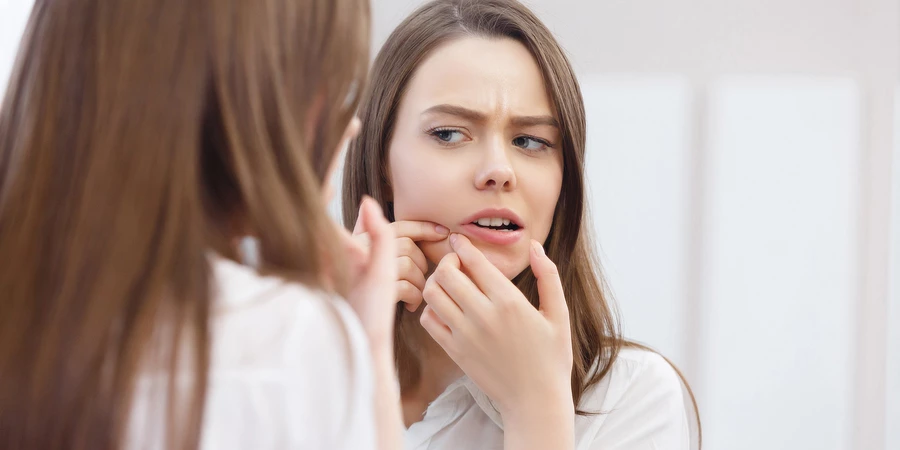Acne and its effects, like blackheads, pimples and scars, especially on the face, can impair your self-esteem. In acne, sebum accumulates in the sebaceous gland follicles of the skin due to hormone activity.
Where excess sebum accumulates, the follicle bursts and can result in a painful inflammation. Bacteria release fatty acids from these sebum accumulations, further stimulating the inflammatory process. Together, we will develop an effective therapy for long-term results that not only helps to prevent scars, but also makes your skin shine again.






